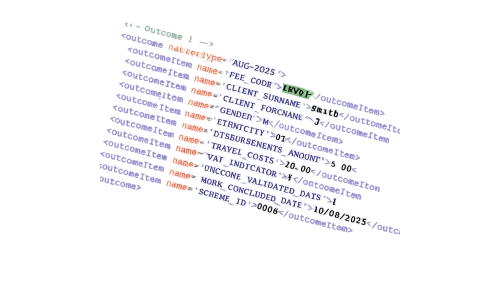New Fixed-Fee Code: What Is It & When Is It Coming Into Effect
The “fixed-fee code” refers to legal aid work that is paid under fixed fees rather than hourly/rated fees. Under fixed-fee work, certain case types (or stages of cases) are remunerated with preset amounts, regardless of the exact number of hours worked (within certain bounds and subject to “escape” thresholds in many instances).
The idea is to provide greater predictability, simplify billing, reduce certain administrative burdens, and help sustainability by ensuring that providers are reasonably remunerated for routine tasks without needing to log every hour under rigid hourly billing.
Recent & Proposed Changes
Some recent reforms relevant to fixed fees include:
In the government’s “Civil Legal Aid: Towards a Sustainable Future” consultation (2023/2024), changes were introduced such as new fixed fees for online system appeals at the First-Tier Tribunal, both with and without hearings. (GOV.UK)
Also relevant: fixed-fee components and escape thresholds were adjusted. For example, the escape threshold for legal help cases was reduced to twice the fixed fee value. Previously, certain stages had to be aggregated to reach escape thresholds; the revised rules allow each stage to escape separately. (GOV.UK)
Implementation / Coming Into Effect
Some changes have already taken effect. For example, amendments to the Criminal Legal Aid (Remuneration) Regulations 2024 came into force on 6 December 2024. (Legislation.gov.uk)
The fixed fees for certain immigration and housing legal aid work were increased (alongside hourly rates) as announced by the Ministry of Justice, following consultation. The government has committed to implementing those “as soon as operationally possible.” (Electronic Immigration Network)
However, for many areas, the precise date for new fixed fee codes is not yet fully confirmed. Transition periods, pilot schemes, testing, and changes to operational systems are affecting the rollout.
What Providers Need to Know & Do
To be ready for the new fixed-fee code and other reforms, legal aid providers should:
Understand which case types/stages will move to fixed fees in your area of practice (immigration, housing, asylum, online appeals, etc.).
Check escape thresholds — know when a case can “escape” fixed fee to be billed hourly; ensure your case management software and your staff are configured to track that properly.
Ensure software / systems are updated — fixed fee rates, codes, billing templates, digital claim forms etc., will all need to align with the new codes. Outdated codes or forms will generate errors or rejections.
Budget for changes — fixed fee work can mean less variability but also risk: if many cases go beyond the expected average work, or clients require unusual amounts of work, providers need to plan to absorb costs or seek extensions/extra payments.
Train staff and ensure clarity about billing practices under the new scheme so mistakes are minimised.
Why Legal Aid Now Requires Named Users on Their Billing Portal
One of the less obvious but important reforms is how user access to the Legal Aid billing / applications portal is being managed. The requirement now is for named users — each user must have an individual account with proper identification, credentials, etc. Why this is happening:
Security & Accountability
Following cyber incidents (e.g. the LAA cyber-attack in April 2025), there has been a sharp focus on ensuring digital systems are secure, traceable, and that only authorised individuals can access sensitive data. Having named users ensures each action in the system can be linked back to a person. (GOV.UK)
Multi-factor authentication (MFA) and unique credentials help reduce risk of unauthorized access, credential sharing, fraud or data leaks. The LAA requires that each user has unique login / email, cannot share generic email accounts for multiple users, etc. (GOV.UK)
Regulatory Compliance, Audit & Traceability
Named users enable proper auditing: which person submitted a claim, who made amendments, who signed off on it. This is crucial for Legal Aid Agency oversight.
In case of disputes, errors, or investigations, having a clear trail tied to individual users simplifies accountability.
Operational & System Access Controls
Roles & permissions can be assigned per user. For example, some users can prepare bills, some can submit, some can only view or manage. Named users are needed so you can manage who can do what precisely. (E.g. in CCMS roles: case management, supervisor, bill preparation etc.) (Legal Aid Learning)
For security systems like MFA, unique user identification is essential. Shared logins or generic users complicate this and undermine security.
Impacts & Considerations
Providers must update internal policies: ensure user onboarding / offboarding process, maintaining who has what access.
Systems used (case management, billing, etc.) will need to support named users, unique email addresses, secure authentication, and mapping roles/permissions.
Providers should plan for possible delays or glitches during rollout (e.g. system testing, delays in user activation).
Clarity of communication from Legal Aid Agency to providers will be vital. Providers should monitor announcements for any operational instructions, required declarations, or deadlines.
Conclusion
The reforms to fixed-fee codes and the requirement for named users in billing portals represent a major shift in how legal aid work is administered and paid for in England and Wales. While many of the changes already underway are positive — including improved fee rates, clearer escape thresholds, and stronger security — the transition requires careful preparation by providers.
Legal aid providers who stay informed, update their systems, and train their people will be better placed to adapt, avoid rejected claims or compliance issues, and ultimately maintain access to justice for their clients under the new regime.
Lawsyst have ensured that its users have a seamless transition to the new version without the need of any further training. Our system will do what is needed in the background so that user's don't need to worry about learning anything new.
If you would like to see lawsyst legal aid system in action, plese book a demo today.


